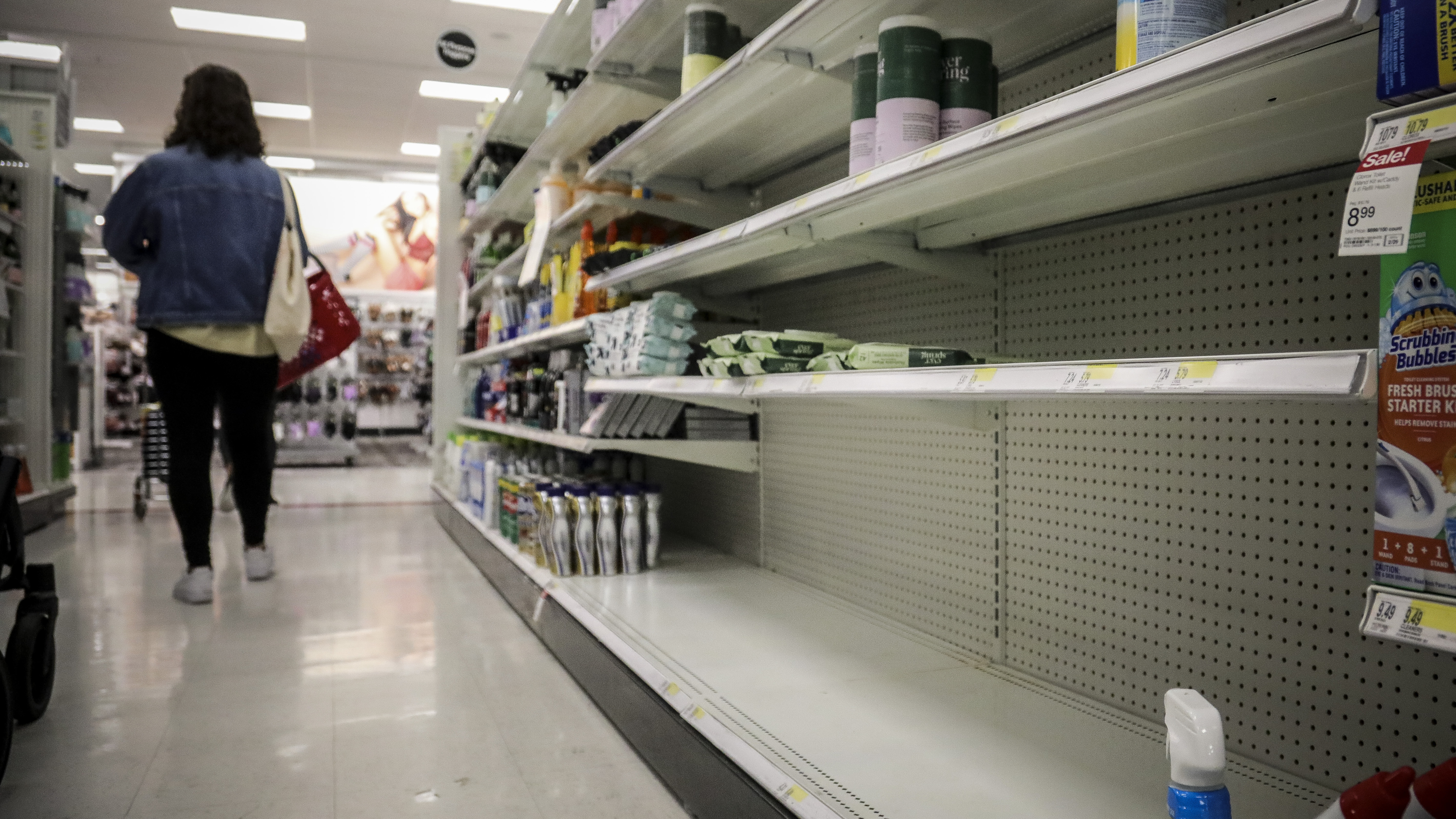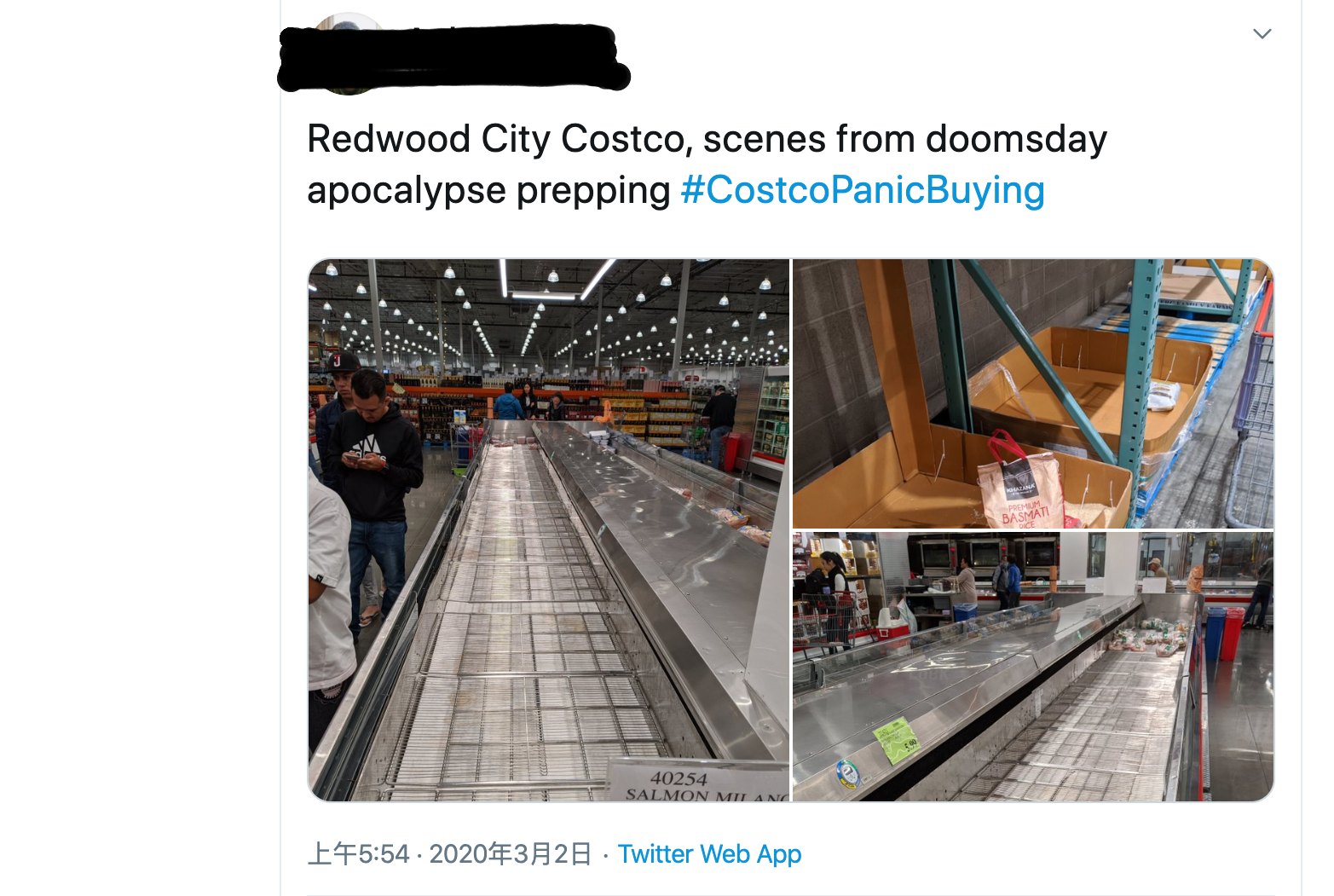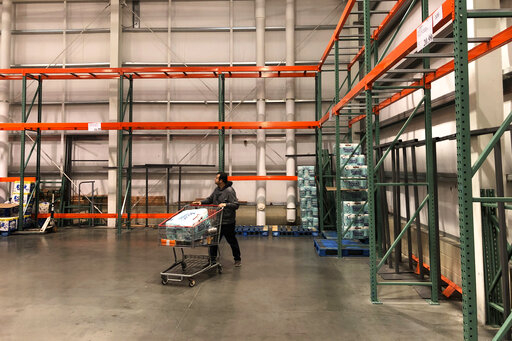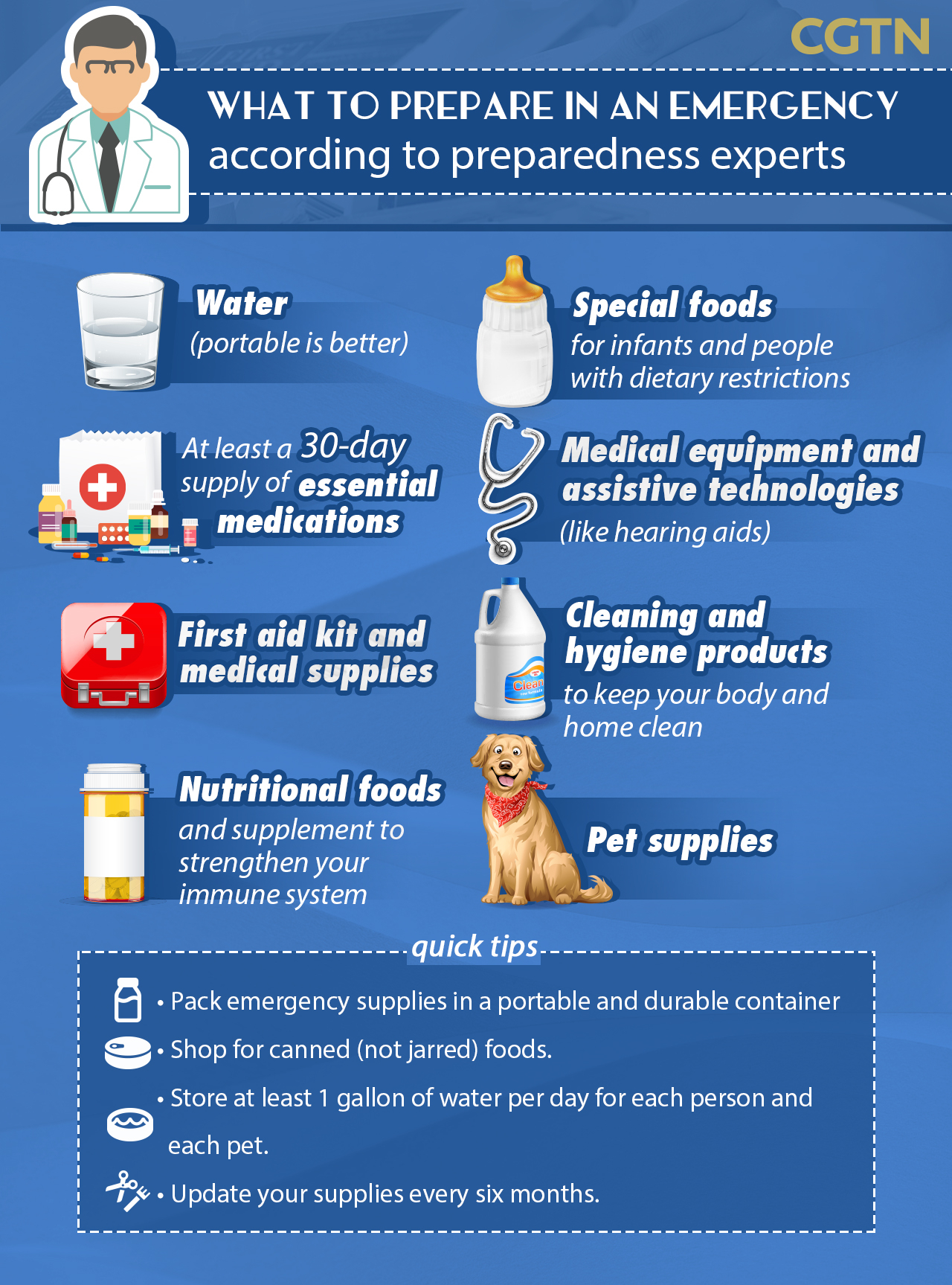
Empty shelves for disinfectant wipes at a store, New York, March 3, 2020. /AP
Empty shelves for disinfectant wipes at a store, New York, March 3, 2020. /AP
"This is how so many scary movies begin."
Amy, a self-employed U.S. woman in her 30s, was scouring internet forums for advice on whether she should call off a planned family trip to Las Vegas over the coronavirus scare that has gripped the United States in recent days.
Like the Wisconsin resident, who is worried about her more vulnerable family members traveling on a plane to a tourist hotspot, few Americans would have thought that a deadly virus that started in the central Chinese city Wuhan could hit close to home.
On Tuesday, there are reportedly more than 650 confirmed cases of COVID-19 in 36 states across the U.S., including 26 deaths. Globally, confirmed cases have surpassed 110,000. More deaths are now being reported outside China, where the majority of COVID-19 cases are.
The numbers in the U.S. have increased sharply from a week ago after health authorities expanded their testing capacity. With more states reporting new cases and more people asked to self-quarantine, panic has begun to set in.
Read more:
COVID-19 Global Roundup: 100 countries report confirmed cases
Traveling in the era of COVID-19

A Twitter post dated March 2, 2020.
A Twitter post dated March 2, 2020.
Panic buying
Around the country, store shelves are being wiped clean as anxious shoppers rush to stockpile essential supplies. Under the hashtag #CostcoPanicBuying, social media users have been sharing photos of empty aisles at their local supermarket. Scenes of chaos on shop floors and queues filling up parking lots have made international headlines.
Costco said its February sales increased by 13.8 percent over the same period in the previous year due to "concerns over the coronavirus." Retailers and pharmacies everywhere are struggling to keep hand sanitizers, face masks and disinfectant wipes on the shelves, with some reportedly having to ration sanitizers and cold and flu-related items per customer. Other items in high demand include toilet paper, bottled water and canned goods, all of which are being grabbed up in bulk.
"Hand sanitizers are as rare as unicorns in stores. Disinfectant wipes have also been out of stock for over a week. As for masks, I have never even seen them available at all," said Lena, a young mother from New Jersey, who said she's annoyed by the shortage of things people normally need.
According to Adobe Analytics, sales of products like hand sanitizers, gloves, masks and anti-bacterial sprays in the U.S. were up 817 percent in January and February.
It's the same story on e-commerce platforms. Nate Wang, an engineer at Amazon, said demand for sanitizing products and immune-boosting supplements on the platform have spiked since the outbreak.
Meanwhile, online retailers have been cracking down on price gouging and false claims targeting customers desperate to protect themselves and their families from the coronavirus. Amazon has removed one million overpriced products related to the coronavirus and also banned or suspended thousands of sellers for violating price-gouging policies, Wang told CGTN.

A customer walks past mostly empty shelves that normally hold toilet paper and paper towels at a Costco store in Teterboro, N.J., March 2, 2020. /AP
A customer walks past mostly empty shelves that normally hold toilet paper and paper towels at a Costco store in Teterboro, N.J., March 2, 2020. /AP
Some people who have joined the buying frenzy say they are preparing for a situation that might require them to self-quarantine for weeks. Others say they are worried about a shortage of essentials created by the panic buying they have seen.
"It doesn't matter if it's necessary. It's just a precaution, and it's better to have it and not need it than need it and not have it," a Facebook user in Oklahoma who posted about stockpiling told CGTN.
Lena said despite what authorities are saying about the coronavirus, she is treating it as a pandemic. "They can deny it all they want, but this is a pandemic now," she said.
Prepping goes mainstream?
"By the time there is an emergency, it's too late! My family thought I was crazy then, now not so much," said Holly, who has joined the "prepper" lifestyle.
One group of people who know all about preparing for impending doom is the so-called preppers, a fringe community often mocked for being paranoid. These people spend their lives perfecting their survival plan for every natural or man-made disaster known to humanity. Some run businesses specializing in helping others prepare for things such as a pandemic.
The COVID-19 outbreak has seen many "preppers" in the U.S. struggling to keep their own cupboards stocked as Americans inundate companies selling survival food packs, gas masks and hazmat suits with inquiries.
A Utah-based company specializing in long-term food storage has reported a 100-fold increase in orders in a single week. Another preserved food supplier for major chains like Walmart has had to stop taking orders and put up a notice on their website, begging people not to call them.
People who have never given thought to the concept are now flocking prepper websites and social media accounts for information about pandemic preparation. On Reddit, moderators on a subsection for preppers complained about the sudden deluge of new inquiries on their front page from people seeking coronavirus-related advice.
"Prepping is about PREparing for emergencies, not creating a supply shortage because you now suddenly need three boxes of N95 masks for personal use," read a notice posted by a moderator for new visitors, who are told to look up older discussions during past outbreaks.

Graphic designed by Yin Yating.
Graphic designed by Yin Yating.
Sarah Browne, assistant professor at Trinity College Dublin, said preppers do not see crises such as the coronavirus as "a temporary breakdown in an otherwise functioning system."
In her co-authored 2019 study, researchers found that prepping has become increasingly mainstream.
John Ramey, founder of the prepper website theprepared.com, told NPR News the coronavirus brought record traffic to his site. "We think it's just a responsible part of adulting," Ramey said.
The website has now dedicated a special section to the COVID-19 with a detailed preparation guide and even a grocery shopping list. In a time of widespread anxiety, surprisingly, the preparedness experts' advice lends a voice of reason.
"Listen to legitimate sources so you can make decisions based on accurate, rational news. This epidemic already has enough actual cause for concern – there's no need to make things worse with fake news!" the author urged.
The preparation advice given for a health emergency is similar to that of the Centers for Disease Control (CDC) and the Department of Homeland Security (DHS). According to the CDC, 48 percent of Americans don't have an emergency kit at home.
Ready.gov, the official website of the DHS, recommends stocking up on a two-week supply of water and food with a long shelf life before a pandemic and periodically checking any prescription drugs one would need.
Other pieces of advice include eating well and keeping yourself entertained and relaxed.
James Ramsay, an expert in emergency management planning at the University of New Hampshire, believes people should be focusing on hygiene practices.
"Wash your hands thoroughly. When you sneeze, cover your mouth completely," Ramsay said. "From a practical perspective, we just have to keep on doing what we're doing."